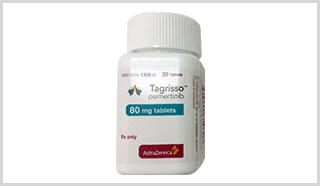Merck reported that two Phase 3 studies evaluating the safety, tolerability and immunogenicity of V114, the company’s investigational 15-valent pneumococcal conjugate vaccine, met their primary immunogenicity objectives.
V114 is Merck’s investigational 15-valent pneumococcal conjugate vaccine in Phase 3 development for the prevention of pneumococcal disease in adults and children. V114 consists of pneumococcal polysaccharides from 15 serotypes conjugated to a CRM197 carrier protein and includes serotypes 22F and 33F, which are commonly associated with invasive pneumococcal disease worldwide and are not contained in the pneumococcal conjugate vaccine currently licensed for use in adults.
The pivotal PNEU-AGE (V114-019) study in healthy adults 50 years of age or older demonstrated that V114 is noninferior to the currently available 13-valent pneumococcal conjugate vaccine (PCV13) for the 13 serotypes targeted by both vaccines and superior for serotypes 22F and 33F, the two serotypes targeted by V114 but not PCV13.
These results are based on opsonophagocytic activity (OPA) responses — a measure of vaccine-induced functional antibodies. The PNEU-AGE study also met the key secondary immunogenicity objective, demonstrating superiority of V114 compared to PCV13 for serotype 3, a leading cause of invasive pneumococcal disease globally.
In another Phase 3 study, PNEU-TRUE (V114-020), in healthy adults 50 years of age or older, V114 met its primary immunogenicity objective demonstrating equivalent immune response across all 15 serotypes for three different lots of V114. In both studies, V114 was generally well tolerated, with a safety profile comparable to PCV13 and consistent with that observed for V114 in previously reported studies. These findings, and additional Phase 3 data from Merck’s clinical program, will be presented at a scientific congress in the future and will form the basis of global regulatory licensure applications, beginning with the U.S. Food and Drug Administration, before the end of the year.
“Diseases caused by serotypes not covered by the currently available pneumococcal conjugate vaccine are increasing worldwide and can vary by country or region. Additionally, we continue to see pneumococcal disease caused by serotypes included in the existing pneumococcal vaccines,” said Dr. Roy Baynes, senior vice president and head of global clinical development, chief medical officer, Merck Research Laboratories. “Continued scientific innovation in pneumococcal disease prevention is needed to target the serotypes that pose the greatest risk to specific populations while maintaining immune response as new serotypes are added. These Phase 3 data demonstrated that V114 generated a robust immune response to all 15 serotypes included in the vaccine and reinforce the potential for this investigational vaccine to help protect adults against pneumococcal disease.”
There are more than 90 different types of pneumococcal bacteria, which can affect adults differently than children. Pneumococcal serotypes not in the currently licensed conjugate vaccine, such as 22F and 33F, are commonly associated with invasive pneumococcal disease worldwide. Serotypes 22F and 33F currently cause 13 percent of the invasive pneumococcal disease seen among adults aged 65 and older in the US, and seven to 12 percent of the adult cases seen across Europe. Additionally, serotype 3 remains one of the top causes of invasive pneumococcal disease in adults and children despite being included in the currently available pneumococcal vaccines. In the US, 15% of invasive pneumococcal disease among adults aged 65 and older continues to be caused by serotype 3; this ranges from 12% to 18% of cases in adults across European countries.










